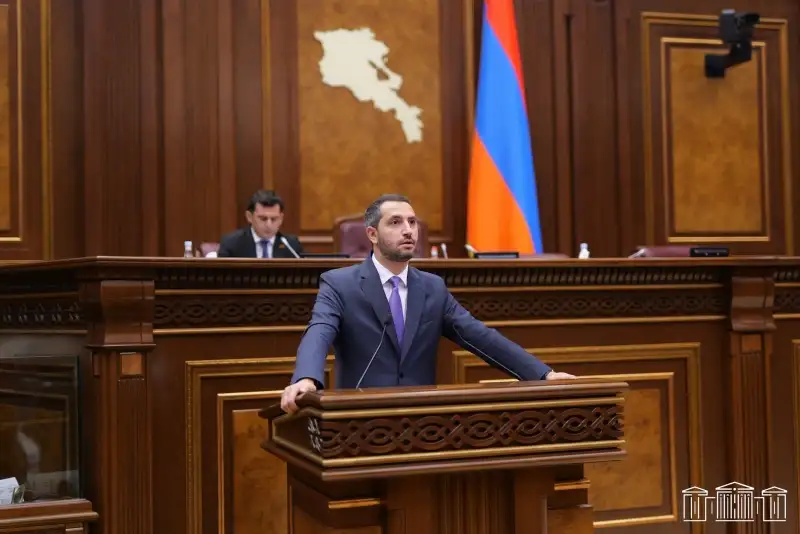Radar Armenia’s interlocutor is international affairs expert Shahan Gandaharian.
- I would like to ask you to comment on the US-China trade war. Passions are heating up, and both countries are imposing higher tariffs. How would you comment?
- It was predictable that the US president would take specific steps against China. But this is also spreading to different parts of the world. Now is the time for shocks. I think the situation will stabilize. There will be trade war ceasefires, but the trade hybrid war will continue. It is difficult to say what impact it will have on the world. These are shocking actions at the moment.
- Why is China not in a hurry to engage in dialogue but, on the contrary, is toughening its policy even more?
I think China was expecting such an attack. It is also counterattacking. Quickly engaging in dialogue would imply speaking from a weak position and making concessions. Now, the parties are acting in the same style toward each other.
- What political consequences can a trade war between the two superpowers have?
It isn't easy to assume that this applies to the two countries and the entire economic world order. It is an economic bipolar situation. In the event of a deepening crisis, protests will begin in different parts of the world, including in the United States. The financial and economic actions that have begun for the US budget and US citizens may have the opposite effect.
- I would also like to touch upon the US-Iran negotiations. What are the expectations in this regard? Will it be possible to reach an agreement on the nuclear issue?
- The US-Iran negotiations, whether mediated or direct, will continue. I do not think that the parties will go to a collision. Iran's proxies have already weakened. The negotiations are conducted according to US rules, and the agreement will follow US rules. There are specific prerequisites to think that, by and large, the nuclear deal has already been reached.
- In this context, I would also like to comment on the Israeli President's visit to the US. Are there any risks of increasing tensions in the region?
- Israel, on the one hand, is pleased that the Iranian proxies are being broken; on the other hand, it is dissatisfied that the US and Iran can come to an agreement. For the first time in the region, the Tel Aviv-Ankara conflict points are intensifying in the Syrian territories. All of this is controllable by the US, which continues to play the role of arbiter. In the case of both Turkey and Israel, the process of their additional dependence on the US is visible.
Arman Galoyan


















